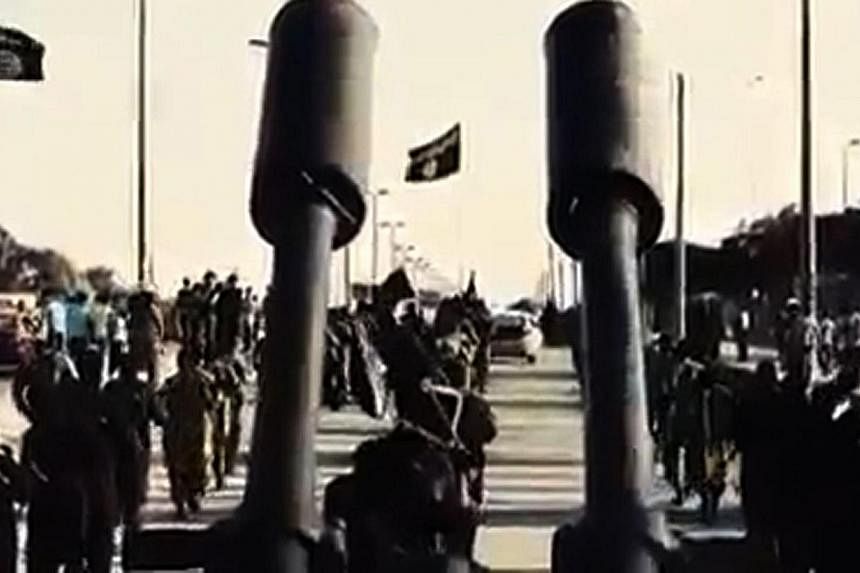PARIS (AFP) - While the Islamic State in Iraq and Syria (ISIS) group is rapidly gaining support among Islamic extremists worldwide, only marginal organisations and isolated individuals are formally expressing their allegiance, experts say.
Of the five main Al-Qaeda offshoots - in Afghanistan, Syria, Somalia, the Sahel and Yemen - none has recognised the authority of ISIS chief Abu Bakr al-Baghdadi, who at the end of June proclaimed the establishment of a caliphate straddling Iraq and Syria, with himself as "leader for Muslims everywhere".
"For the moment, those rallying behind Islamic State are on the margins, not at the centre (of the extremist movement)," said Dominique Thomas, an expert in Islamist groups at the Paris-based School for Advanced Studies in the Social Sciences.
"They are small groups or marginalised individuals looking for recognition. They are proclaiming their allegiance to show they exist," Thomas told AFP.
The expert cited as an example the declaration of allegiance to ISIS made in September by the Algerian group Jund al-Khilifa - or "Soldiers of the Caliphate" - which hit the headlines by kidnapping and then beheading French hiker Herve Gourdel.
"This is a group that has been in conflict for a long time with (the head of Al-Qaeda in the Islamic Maghreb Abdelmalek) Droukdel," he said.
There are also "personal considerations" at play in Saudi Arabia, Jordan and Libya, but "these are not at the moment significant organisations themselves."
Some heavyweight Al-Qaeda groups have voiced support "because it's impossible not to support them when faced with the common enemy of the United States, but support and allegiance are two different things," stressed Thomas.
But as ISIS stays in the headlines amid a battle for the Syrian border town of Kobane under the bombs of a US-led coalition, the leaders of more established militant groups are seeing their supporters drawn to the relatively new force.
"Everywhere, commanders are coming under pressure from their supporters to move closer to ISIS," said Romain Caillet, a researcher on Islamic groups based in Beirut.
"But for the moment they are resisting. There is also without doubt a split in generations: the Al-Qaeda chiefs seem too old, outdated in the eyes of the new generation," added Caillet.
ISIS has targeted young people with propaganda on the Web and has made extensive use of social networks like Twitter and Facebook to radicalise.
Jean-Pierre Filiu, a specialist on radical Islam at Sciences Po research institute in Paris, said ISIS had "definitively dethroned Al-Qaeda as the ultimate reference point for global jihad".
"All the major jihadist groups have voiced support in the face of the bombing campaign by the United States. They haven't however expressed allegiance to Baghdadi because this process of integration would require a 'globalisation' of the confrontation," said Filiu.
Thomas said that the more Western bombs fall on ISIS and the more the group resists, the more attractive it will be to would-be extremists.
The Western military action against them has pulled the radical Islamic groups together and Al-Qaeda in particular has increased its call for togetherness to avoid "fitna" or discord within Islam, said the expert.

